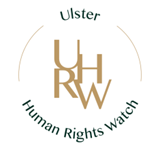Declaration: The Alternative to the Stormont House Agreement For Dealing with the Legacy of the Past 14 July 2021
The serious deficiencies of the proposed Stormont House Agreement arrangements for dealing with the past have been made clear.
While claiming to be victim-centred, the major failure of the Stormont House Agreement was that it did not provide a definition of ‘victim’. Victims of crime who, in relation to the Troubles are victims of terrorism, must be dissociated from perpetrators of acts of terrorism. Therefore, the definition of victim of terrorism should constitute the basis of any new arrangements for dealing with the legacy of the past.
The analysis of the functioning of the Stormont House Agreement’s suggested bodies revealed key issues of concern and weaknesses. It would appear that these bodies, instead of serving the interests of victims of terrorism and society at large, would be used against former members of the police and the armed forces and benefit those who were engaged in terrorism and their sympathisers.
Urgent requirement
An alternative is urgently required to address the legacy of the past in order to bring about a satisfactory resolution within the context of a democratic society. It should be founded on fundamental principles that uphold human rights for all interested parties: victims of terrorism, police officers and army personnel.
Investigating bodies such as the Police Ombudsman for Northern Ireland and the Legacy Investigation Branch should be made compliant with human rights requirements.
An archive for victims of terrorism stories and testimonies should be created in the Public Record Office of Northern Ireland to be made available to the public; and a Committee for Peace, Freedom and Reconciliation should be created to develop policies and educational programmes to combat terrorism and radicalisation and promote peace, freedom and reconciliation.
Republic of Ireland role
The alternative should also involve the Republic of Ireland in setting up investigating and information recovery bodies that mirror those existing in Northern Ireland. These bodies would investigate historical cases and criminal activities that may have been committed by members of the Garda Síochána. They would also review numerous extradition requests made by the United Kingdom but never honoured by the Republic of Ireland and cooperate with the authorities in Northern Ireland for the resolution of historical cases. The Republic of Ireland would also make its archive available for consultation in relation to historical cases, as they are in Northern Ireland.
Final settlement
This comprehensive approach to dealing with the legacy of the past will have the potential to deliver a final settlement and durable peace.
The alternative proposed by the Ulster Human Rights Watch for dealing with the legacy of the past will ensure that:
- The truth concerning the murder of victims of terrorism will be sought and told;
- Justice will always remain available for those who lost loved ones or were seriously injured and no statute of limitation will be introduced to protect perpetrators;
- The suffering of innocent victims of terrorism will be acknowledged;
- Article 2 of the European Convention on Human Right will not be implemented to the detriment of those who fought against terrorism;
- All investigating processes will be compliant with Article 6 of the European Convention on Human Rights;
- All investigating processes will be compliant with Article 8 of the European Convention on Human Rights;
- No-one will be able to use any right under the European Convention on Human Rights to destroy the rights of others in compliance with Article 17 of the European Convention on Human Rights;
- The history of the campaign of terrorism in Northern Ireland and its impact on the people of Northern Ireland and democracy will be written and told;
- Terrorism and its consequences will be exposed, denounced and rejected;
- Support will be provided for innocent victims of terrorism;
- The commitment of those involved in the security forces to protect democracy and uphold human rights will be recognised;
- All murders and serious injury cases will be addressed;
- The new structures for dealing with the past will be practical and cost-effective;
- Compensation for victims of terrorism will be addressed;
- The Republic of Ireland will be accountable for its role in what happened during the Troubles;
- The way for potential reconciliation will be made possible.
Reference: ‘Dealing with the Legacy of the Past, The Alternative to the Stormont House Agreement’, Ulster Human Rights Watch, July 2021.
